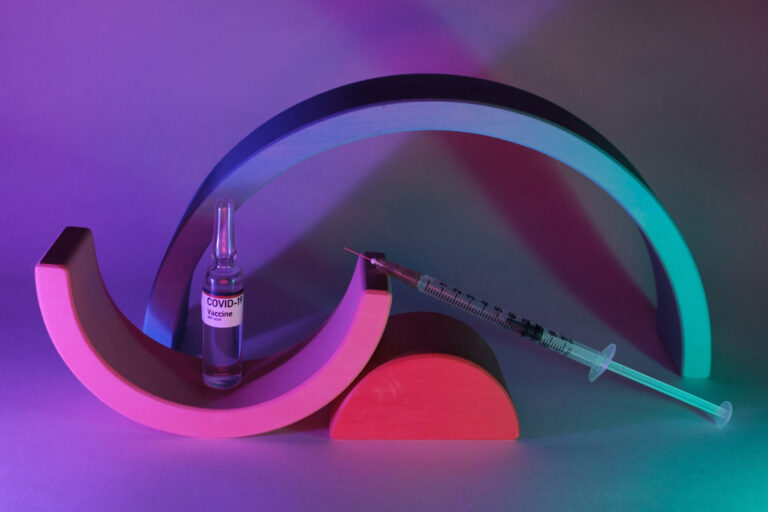Meet Cobi, the autonomous robot administering vaccines minus the needle
According to a recent Oxford survey, trypanophobia—a condition marked by extreme fear or aversion to blood or needles—accounts for about 10 per cent of cases regarding COVID-19 vaccine hesitancy. Surveying 15,014 participants, the study added how such reluctance tends to be higher among the youth and certain ethnic minority groups. The KFF COVID-19 Vaccine Monitor, an ongoing research project tracking the public’s attitudes and experiences with vaccinations, also noted that an estimated 63 per cent of children are afraid of needles, thereby triggering hesitancy in their parents.
“Addressing such fears will likely improve the effectiveness of vaccination programmes,” the Oxford study highlighted. With companies like Pfizer currently working on antiviral pills proven to reduce the risk of COVID-19 hospitalisation or death by 89 per cent, a new piece of technology is in the talks. Introducing Cobi, an autonomous robot that could help make vaccination less intimidating for those squeamish around needles.
What is Cobi?
Developed by Cobionix, a company founded at the University of Waterloo’s flagship incubator, Cobi is a versatile robotics platform that can be deployed to complete tasks without the need for human intervention and supervision. Outfitted with a needle-free injection technique, it is also claimed to be the first robot capable of performing intramuscular injections.
The innovation works something like this: after pre-registering for a vaccination online, patients will show up at a clinic or practitioner utilising a Cobi robot. As they inch closer to the droid, multiple 3D depth sensors detect the patient’s presence before they’re asked to display identification documents to a camera on the unit’s touchscreen interface. Once their IDs are verified, the robotic arm retrieves a vial of vaccine from a built-in storage. A LiDAR sensor on the hand of the robotic arm is then used to create a 3D map of the patient’s body—which is analysed to determine the optimal injection site.
Here, Cobi will also provide instructions to help patients prepare for the injection, including tips on where to stand and whether they need to remove any clothing for the procedure. Utilising a third-party needle-less technology, the vaccine’s contents are subsequently injected deep into arm tissue with a high-pressure jet of fluid. “The jet is no larger than a human hair, so it shouldn’t be intimidating or leave any noticeable marks on the patient,” noted Boy Genius Report.
Tackling a necessary ‘evil’
From delivering zero-emission meals to harvesting fruits of the future, autonomous robots are undoubtedly on the rise. Sporting a list of advantages within the healthcare sector, Cobi is currently being pushed to the forefront as the future of healthcare, cleantech and hospitality. “Autonomous solutions such as Cobi could protect healthcare workers, reduce healthcare costs, and improve patient outcomes,” said Nima Zamani, co-founder and CTO of Cobionix in a press release. According to Zamani, the autonomous nature of the droid also reduces the infrastructure requirements of vaccine clinics—which could help reach populations in remote areas with limited access to medical care. Apart from doubling up as an efficient way to tackle the labour crisis in healthcare, Cobi also opens the entire possibility of vaccinating people with zero human interactions.
The bot’s skills aren’t limited to healthcare either. Typically, autonomous robots are purpose-built which, in the long run, can be more affordable than a human employee while taking over tasks that are potentially dangerous for them to perform. However, the initial costs for such innovations are extravagant, making it unfit for small businesses that can’t afford the upfront costs. “Cobi, by comparison, is designed and built with extreme flexibility in mind, and simply needs software updates and minor re-tooling to change jobs,” writes Gizmodo, adding how this allows the robot to be built en masse, which ultimately helps reduce its price tag.
With small tweaks and a few coding changes, Cobi can therefore become an entirely new robot—capable of performing a completely new set of tasks. “Initially, we are targeting applications in healthcare, cleantech and hospitality for two reasons,” said Tim Lasswell, CEO of Cobionix in the press release. “Firstly, all of these industries suffer from labour shortages and low efficiency and secondly, because our founding team has a significant amount of experience in these industries.”
According to the Canadian startup, a lot of variables have to be taken into account before introducing Cobi to the healthcare sector. Although a rough estimate of two years is being speculated, the very news of the bot comes at a time where hypnosis is being considered as a factor to help children overcome their fear of needles and COVID-19 vaccinations are being switched out with saline and air injections. Don’t even get me started on those healthcare workers bragging about forging vaccination cards and criminally aiding hesitancy on the way.





